Antihero to zero: VW rises from ‘dieselgate’ to lead charge on electric vehicles
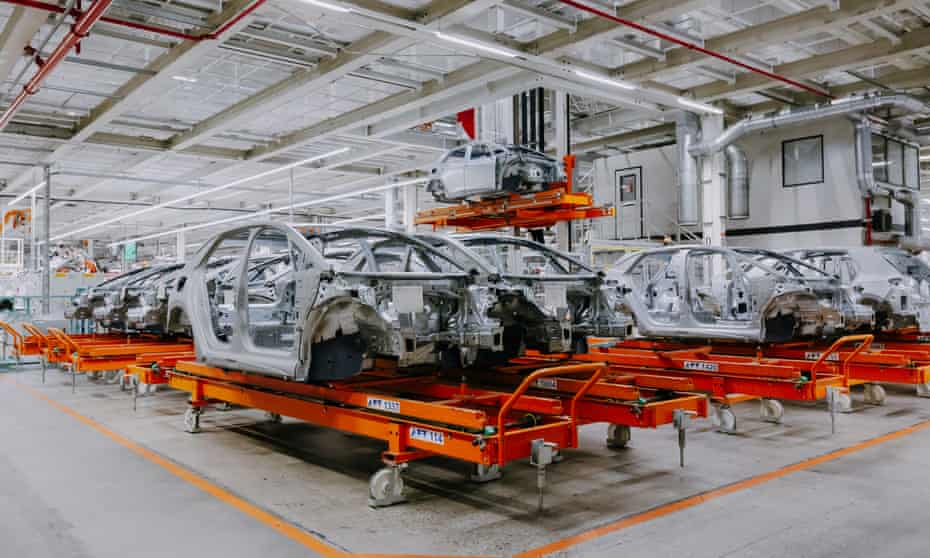
Volkswagen embraces the future with EUR35bn investment, including in its Zwickau plant
Two bronze statues that guard the entrance to Zwickau train station in Saxony tell the tale of Germany’s struggle to wean itself off fossil fuels.
A crouching miner cradles a lamp in a nod to the lignite, a particularly dirty form of coal, that was dug from this part of former East Germany, fuelling its factories and power stations. His companion, an engineer, represents the car industry that dominates Germany’s industrial heartland.
But while mining for coal is on the way out, the country’s influential car industry, which employs more than 830,000 people, is heading in a new direction. Volkswagen‘s enormous plant on the outskirts of the medieval town is the first in the German carmaker’s empire to fully embrace the future.
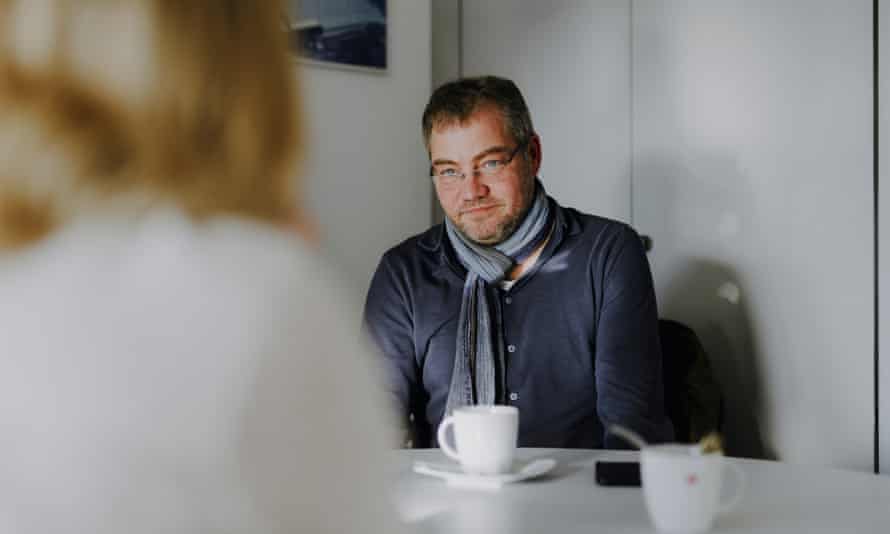
The last internal combustion engine (ICE) car, a VW Golf estate, rolled off the line here in June 2020, as Zwickau became the first factory belonging to a volume car manufacturer to fully switch from building petrol- and diesel-guzzling cars to those powered by lithium-ion batteries.
Six years after the humiliation of its global emissions scandal, the world’s largest carmaker by output is leading the charge for Germany‘s carmakers, as they look to end their lengthy and lucrative love affair with hydrocarbons by going electric.
Dieselgate in 2015 – where VW was found to have installed so-called defeat devices in its cars to cheat emissions tests – left an indelible mark on the company. It may also have pushed VW more quickly to a lower-emission strategy than many of its domestic and international rivals, and spurred tough new government rules. The European Union intends to end the sale of new petrol and diesel vehicles by 2035.
“We started this four, five years ago when we had the discussion, what are the next steps for Volkswagen’s strategy, where are we going as a company with our customers,” recalled Andreas Walingen, Volkswagen’s chief strategy officer.
“We can be open on this also; the diesel crisis really gave us, [a sense of] think about yourself, what is your purpose,” Walingen said.
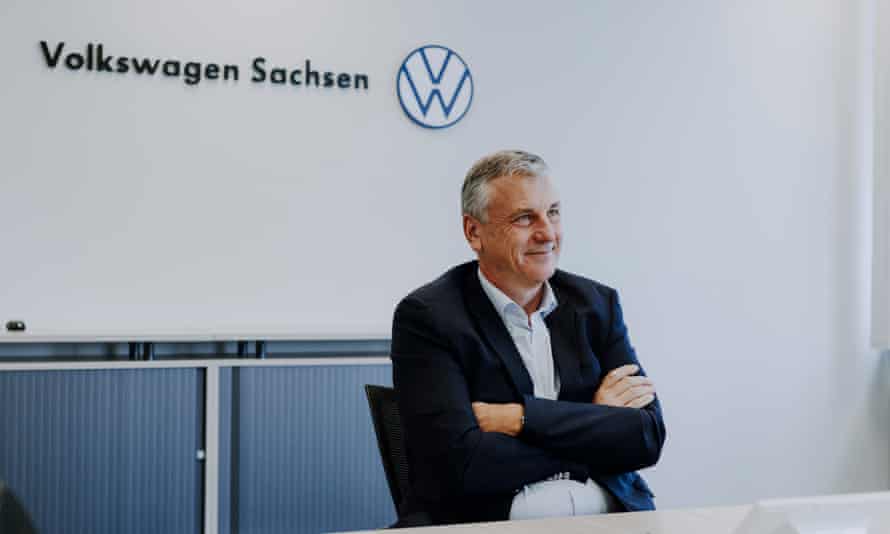
“We sat together and said we really have to make a change, we have to go for zero”.
VW’s bet on electric prompted a EUR1.2bn (GBP1bn) investment in the Zwickau plant – out of EUR35bn the firm is spending on electrification – and a two-year transformation where 85% of the site was converted to produce solely electric cars.
Now five all-electric models from three of the group’s brands – VW, Audi and Seat Cupra – are already being produced, and will be joined soon by a sixth, the VW ID.5, with the goal of reaching 300,000 vehicles a year from 2022.
“It is running much better than expected, because the market wants electric vehicles, that’s the difference,” said Dr Stefan Loth, chairman of Volkswagen Saxony’s management board.
“In 2017, not everybody thought it was the right decision, but they were anxious in case something goes wrong and nobody buys these electric vehicles, and we have a plant with little output.”
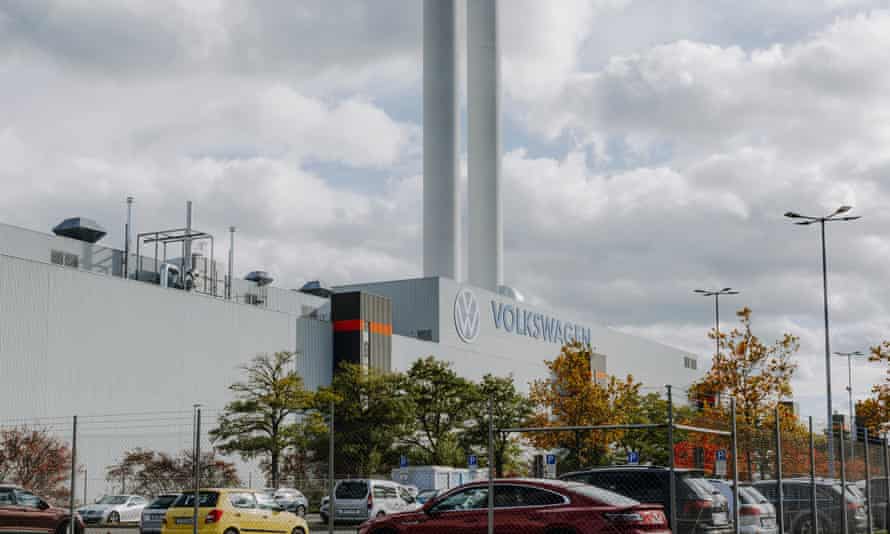
VW now can’t build e-vehicles fast enough. Current problems are all about supply rather than demand, because of the ongoing global shortage of semiconductors used in everything from controlling car batteries to seats.
Initially, a big concern of Zwickau’s 8,500-strong workforce was whether anyone would want to buy electric vehicles, as well as what higher levels of automation would mean for jobs.
“There was fear among young and old. The same questions kept coming up. Will they still need me, what will happen to my job,” said Maik Mockel, 39, head of assembly hall 6, a cavernous space the size of 11 football pitches.
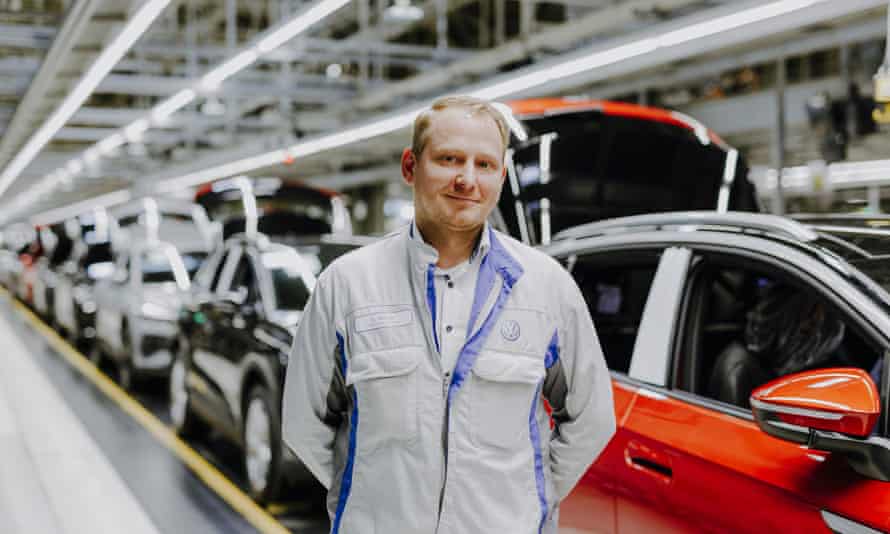
The conversion left few areas untouched. Patches of factory floor had to be reinforced with steel to withstand 2 tonne electric vehicles, including their 500kg lithium-ion batteries.
The conversion brought in more robots, but the carmaker has guaranteed it will maintain current employment levels in Zwickau until 2029.
It was a “long road” to get the workers on board with the plant’s transformation, said Jens Rothe, head of the powerful works council at the plant, a German corporate tradition where elected workers represent their fellow employees to management and play a role in corporate decision-making.
“I have always said we are the icebreaker for the whole firm,” Rothe said.
It is the second significant transformation at the site owned by VW since 1990 – the iconic Trabants were once built here.
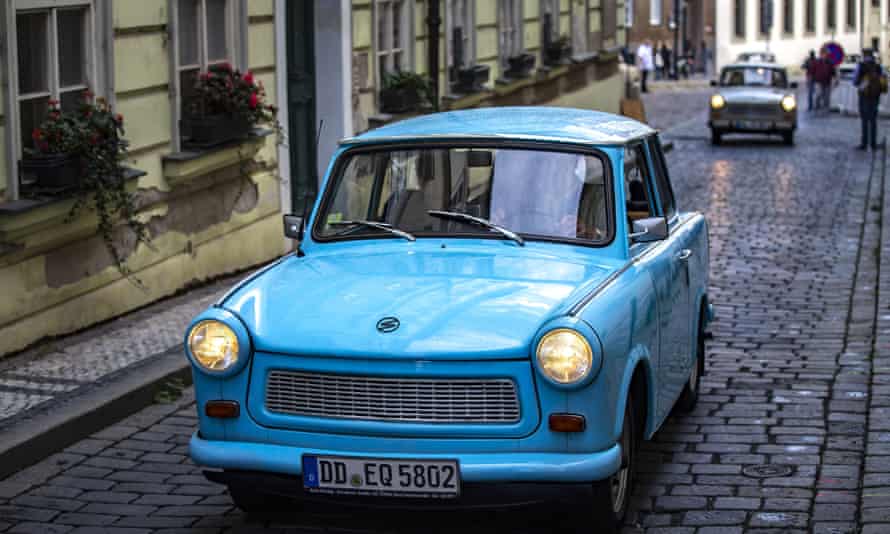
The switch to electric also brought Audi production back to the town where the brand was established in 1910.
VW’s investment in electrification has put it ahead of many of its rivals, according to Matthias Schmidt, a Berlin-based independent car analyst. “VW are lobbying the EU and German government to say the transition should occur quicker,” he said.
“They are quite happy to destroy the competition, and if these CO2 legislation targets get moved forward. VW are way on target to meet their CO2 legislation and other car manufacturers have now got to speed up.”
VW has already sold its electric vehicle platform to Ford under licence, allowing the US carmaker to build electric cars in Cologne for the European market.
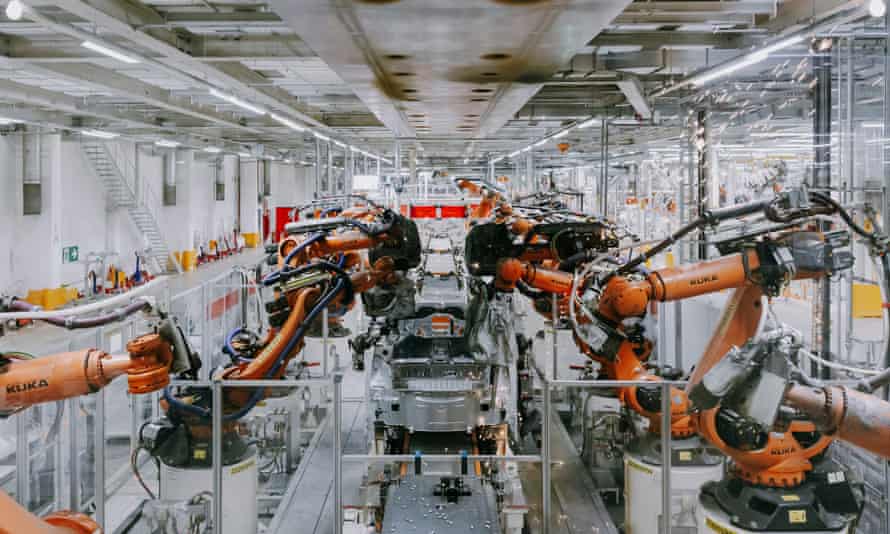
Yet not all German carmakers are moving at the same pace, and the rapid shift away from hydrocarbons led by VW has provoked concern about the impact on Germany’s export-led economy – and the potential for mass job losses. The head of Mercedes-owner Daimler has called for an “honest conversation” about the impact of electrification on jobs.
Meanwhile, VW’s chief executive Herbert Diess has recently felt the heat from the works council at the company’s Wolfsburg headquarters over how it plans to revamp the site, as it looks to boost productivity amid the semiconductor shortage.
The company is also facing competition on its home turf from US electric carmaker Tesla, which is building a factory outside Berlin, where it intends to create 10,000 jobs and produce 500,000 cars a year at its gigafactory, which will include the world’s largest battery plant.
“Especially in Germany you’ve got specialist companies that have been champions of industry, specialising in specialist parts for the internal combustion engine,” Schmidt said. “Of course there are going to be job losses, but what often gets missed is there are going to be new job opportunities created as well.”
Thomas Knabel, the representative of the IG Metall metalworkers’ trade union in Zwickau, said they faced difficulties in getting the region’s suppliers to take electrification seriously. “Lots of auto suppliers asked whether it would really happen. But it was clear to us that it would, and would be a huge process of change,” he said.
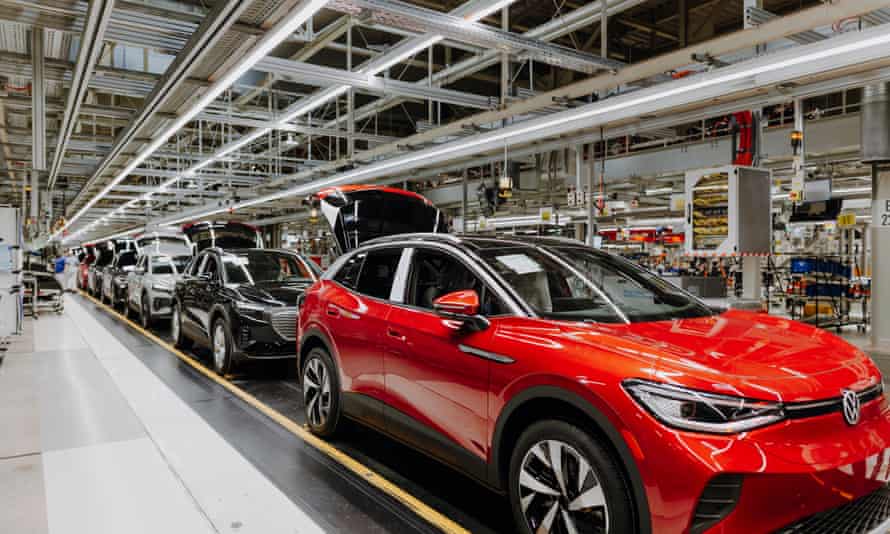
At a national level, carmakers and the rest of German industry are waiting to see what the presence of the Greens – along with the Social Democrats (SPD) and the Free Democrats – in the new coalition government, will mean for environmental policy and its impact on industry.
The three parties are in talks to form Germany’s next government, and among their challenges will be reducing use of fossil fuels – including the reliance on coal for a quarter of the country’s electricity production needs – while significantly increasing the country’s electric vehicle charging network.
In Zwickau’s medieval square, locals are just grateful that the town’s biggest employer has been given a new lease of life. “We have to be pleased they rebuilt the factory. It’s definitely a great win for Zwickau, and the whole region profits from having it here,” said Hanfried Trultzsch. But at 78, he is too old to get an electric vehicle himself, laughed his wife, Hannelore. “At our age we don’t need to get an electric vehicle, I’m happy with my Mercedes.”
